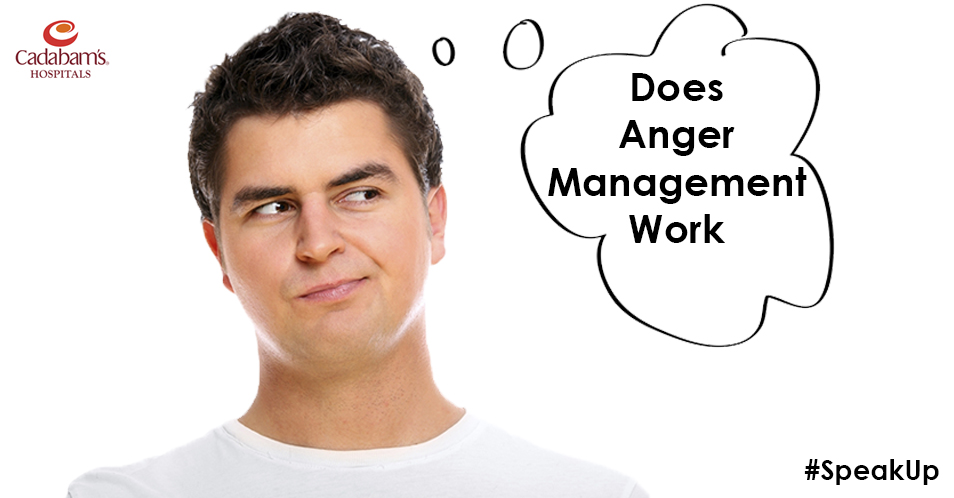Table of Content
If you recognize your own emotions, in this case, anger, you will recognize your relationship with it. Are you someone who feels drained on a regular basis after having multiple outbursts? Does it leave you with no energy for positive emotions, and for other things in general? Then it perhaps will do you well to consider joining some anger management classes. This isn’t something that is inherently taught to anyone when in school, so there is usually a form of coaching that can help regulate our emotional outbursts. There definitely is a stigma associated with getting into classes like these, but think of it as a self-improvement tool. Anger management therapy is something that has been known to work on many people, but it is widely successful overall.
What is Anger Management?
This isn’t the same thing as going to therapy. This is more like joining a class, which has a more psychoeducational approach to controlling and reducing angry emotional outbursts. It's a very student coach type of interaction that occurs here. Therapists are usually also a part of anger management counseling, and they can help diagnose underlying mental health issues and also work through triggers. This is essentially similar to skill development and building emotional intelligence in matters to form new perspectives.
What does a typical Anger Management class look like?
In most cases, they are conducted within a group setting. In most cases, they are gendered spaces, but that could vary from place to place. A usual class will consist of a coach who will help the participants with anger as an emotional response. Then they will help you understand what are the root causes, as well as the effects that they may have on your life as well as the people around you. There is usually an aspect of sharing your experience with the group, and this can help others relate to you, as well as contextualize the anger. Perhaps the most important of it all, is the role-playing activities that come in, and how you can apply these skills in scenarios.
Should you go to Anger Management classes?
There definitely is a stigma associated with anger management classes, which makes it even tougher to overcome the actual anger issues. There is a high success rate and is a very successful option for reducing aggression, violence as well as domestic abuse. If you’ve wondered how you could benefit from these classes, ask yourself how much time and energy you waste every day feeling angry towards people. Of course, there are just those days, but if you think you’re only having those days, then perhaps it is something that you could consider signing up for.
What therapies work for anger?
There is a major component found in therapies to treat chronic anger issues. The goal is to work through the problems, so that the end goal is to have a more healthy relationship with one’s emotions. Therapy is prescribed on the intensity of the anger as well as the causes of it. Therapy is also helpful if there is a loved one whose anger is affecting you. There are certain forms of therapy that can help, such as Cognitive Behavioural Therapy, Psychodynamic Therapy, Group Therapy, and Play Therapy.
Cognitive Behavioural Therapy works by recognizing triggers to your anger and identifying how you normally respond to said triggers. Working with a therapist can help you learn new ways to respond to anger, and heal from emotional trauma. Coping methods are also a part of this therapy, as well as making personal goals to overcome issues faced with you. Psychodynamic therapy is focused more on self-reflection, which works to reveal one’s unconscious to ease tensions. It also focuses on expressing anger in ways that don’t affect people and loved ones around you. Group therapy can help you feel less alone when you’re going through the treatment since there are other people who can relate with you. It can be helpful to hear what others are going through, which increases the relatability factor. In most cases, this is a supplement to other forms of therapy, and this is naturally best when associated with other forms which are given by a licensed professional.
How to get help?
Talk to friends and loved ones. They could help with getting you into it, and talk you through the process. They might even help you set up the whole process. Talk to a healthcare provider such as your family doctor, or any other healthcare provider who can help you with this. Check with your organization’s counselors, who could be better equipped to refer you to some other professionals who are better suited. And of course, looking up anger management techniques online is often also a very easy option to get connected with what you need.
How Cadabam's Help you for Addiction?
- 410+ Professional Consultants
- 1,00,00+ Happy Faces
- 120+ Currently Seeking Treatments









